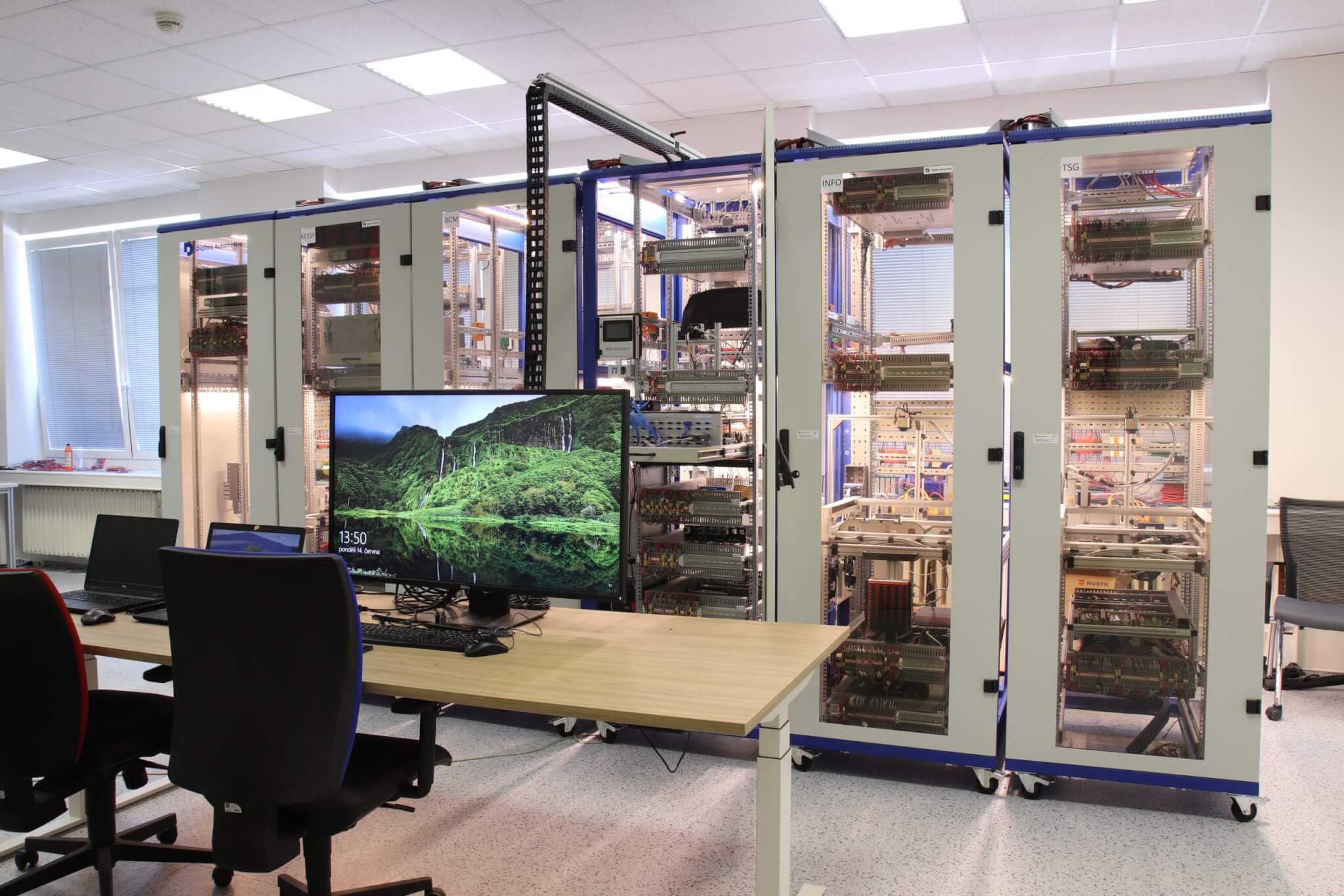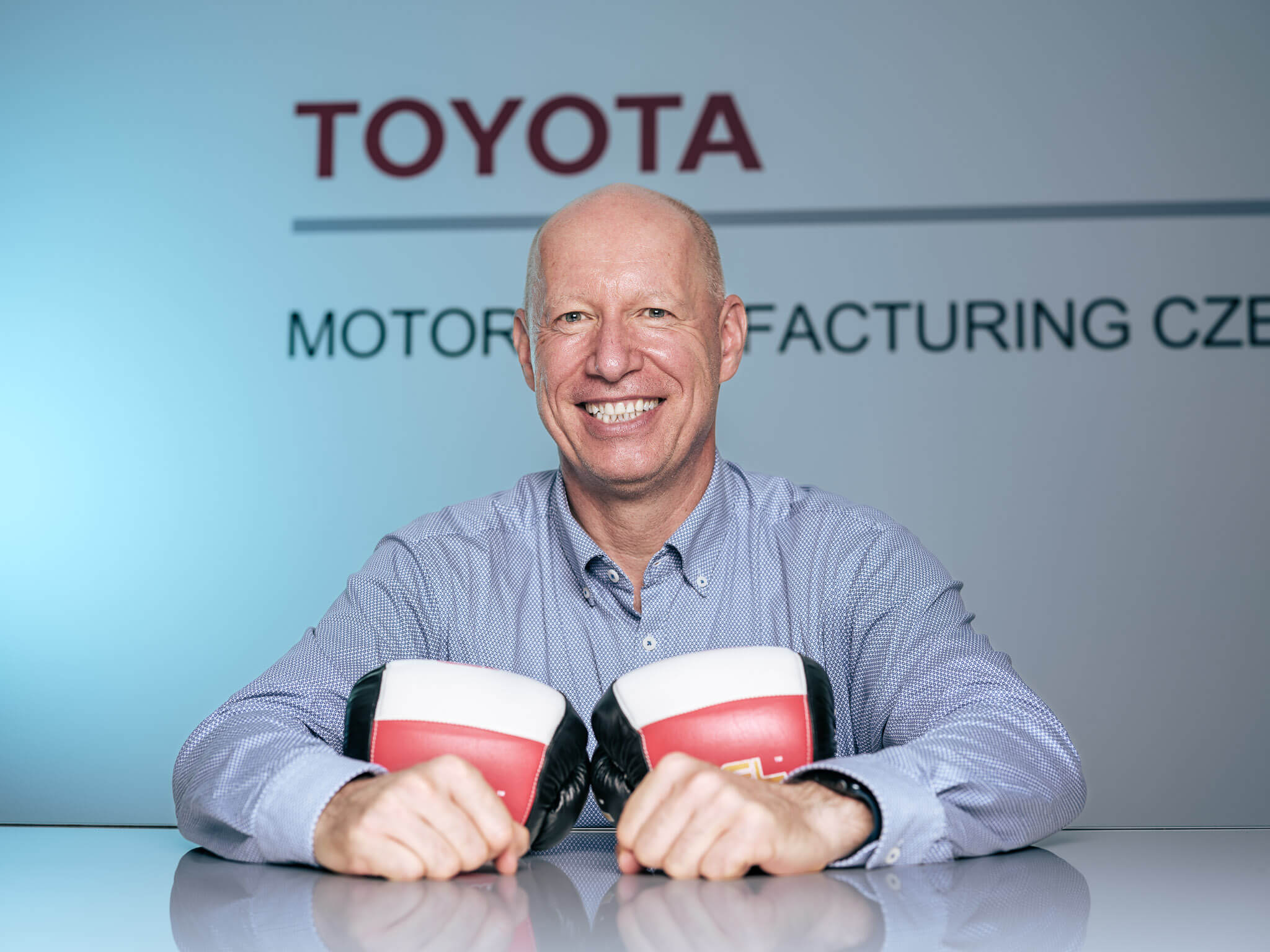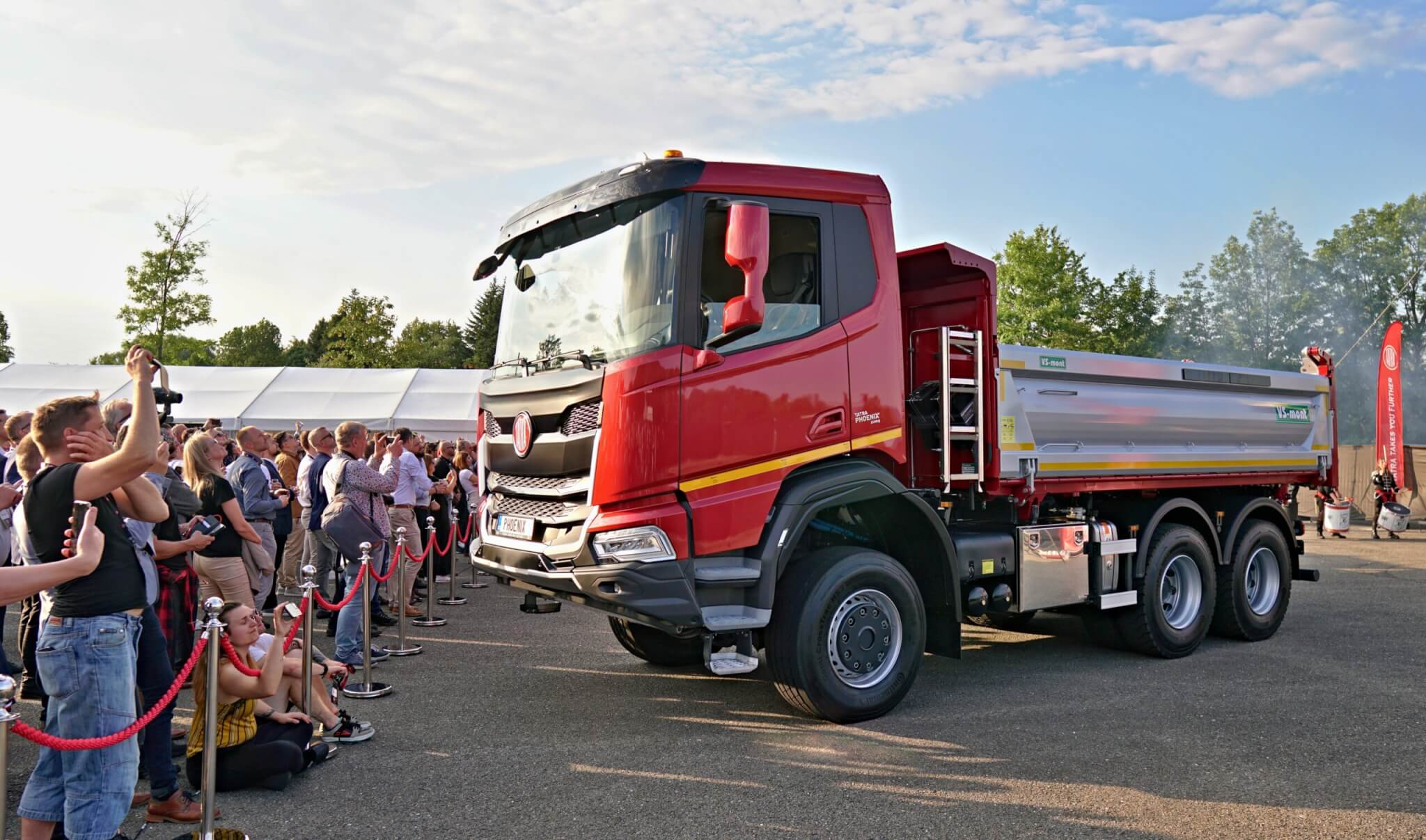They design concepts, provide technical validation of innovations and develop and test series solutions for new functions for Volkswagen Group brands. The goal of Digiteq Automotive’s developments are modern vehicle-crew interfaces, advanced comfort, safety and assistance systems. For example, it is currently collaborating on the development of a platform that will serve as the basis for Level 4 automated driving.
The architecture of electronics and software in the car is changing. If you open the bonnet of the latest car in the future, you will no longer find a large number of individual electronic units with relatively little computing power underneath. These will be replaced by a smaller number of powerful computers that process information from all the sensors in the car. “The car is becoming, in effect, a computer on wheels,” says Petr Bergl, Head of Software at Digiteq Automotive, adding specific examples of where the change will take place. Today’s common ultrasound, cameras and radar will be augmented by lidar. Car connectivity will enable data processing not only in the car but also outside the car. Data from the car will be stored in the cloud and its processing by learning algorithms will open the door to expand and improve current services, for example to optimise assistance systems.” According to Peter Bergl, completely new services will also emerge in connection with this – not necessarily purely automotive matters, but also insurance, the sharing economy and others. “On top of all this, of course, is the holy grail of the car world – full autonomous driving, which cannot work reliably without all these systems,” concludes Petr Bergl.
Joint venture and equal partner
Digiteq Automotive is involved in many of these trends. It develops concepts for crew-to-vehicle communication interfaces, voice assistants and front-end design for infotainment. It designs concepts, provides technical validation of innovations and verifies the feasibility of new functions. The goal is intuitive, unambiguous, comprehensible and safe communication between the car and the crew and, through functions and applications, with the outside world, whether with other cars, traffic signs or other information systems.
Digiteq Automotive is a subsidiary of ŠKODA AUTO and CARIAD, the software division of the Volkswagen Group. It is therefore a 100% member of the VW Group, which enables the company to participate in projects for various Group brands. ŠKODA AUTO and CARIAD are also Digiteq Automotive’s main customers.
“From a purely economic point of view, Digiteq Automotive is a subcontractor to the VW Group. In fact, we operate and are – thanks to our specific competencies – accepted as an equal partner in many areas,” says Wilhelm Schmitt, CEO and Managing Director of Digiteq Automotive, which has a team of more than 650 experts, many years of know-how and the backing of laboratories and test centres in Prague, Mladá Boleslav, Plzeň and, since this year, also in Brno.
Own unified software
The Volkswagen Group’s long-term plan is to develop selected software products under its own roof using its CARIAD division and companies such as Digiteq Automotive. Peter Bergl from the Software department confirms this: “A large part of the software is or will be developed in-house or through strategic partnerships, especially in areas such as software and hardware architecture, operating system, cloud, automated driving or infotainment.” In this way, Volkswagen intends to tap into new sources of profit offered by, for example, autonomous driving or vehicle infotainment in the form of payments from vehicle owners.
“For mobility companies, software will become the new differentiator and the foundation of data-driven business models.”
With the increasing complexity of all systems in future vehicles, the challenge is clear: simplification and unification are needed. This is also the direction Volkswagen is taking. The Group’s intention is to have one platform, called the SSP, the Scalable System Platform, as the basis for all vehicles in the future. Functionality will be scalable from the cheaper brands to the premium ones.
SSP will be “powered” by a single 2.0 software platform being developed by CARIAD for all the Group’s vehicles. “This new platform for on-board connectivity and software will enable synergies across all Volkswagen Group brands. The unified software stack will form the technical basis for data-driven business models, new mobility services and autonomous driving Level 4. The unified software platform 2.0, which will be rolled out across the Group with the arrival of the SSP platform, thus sets the stage for a completely new digital ecosystem,” explains Petr Bergl.
The new differentiator
The share of software solutions in the price of a car will grow in the future.
We can get some idea based on some analyses that estimate that the R&D costs for creating these software products will rise from 15 percent of the total R&D budget in 2020 to 35 percent in 2030. And by that year, nearly a third of global mobility market revenues will come from software-based services, which will be the same for electric and internal combustion engine vehicles.
“For mobility companies, software will become the new differentiator and the foundation of data-driven business models,” thinks Petr Bergl.
Direction: level 4
An important area of development at Digiteq Automotive is assistance systems and functions that will enable fully autonomous driving in the future. Signals from various sensors are analysed on a daily basis, trajectories and the necessary control algorithms are designed. Digiteq’s ambitious goal is to support the Volkswagen Group from the first idea to deployment in real cars, especially in the areas of assisted parking and safety. This includes support for the hatchery of ideas, their implementation for demonstration purposes, as well as the development of software for series use and its application in specific models.
The VW Group has historically been a pioneer in the use of platforms for vehicle development and production. It is essentially a kit that is used to build a specific model. For cars with combustion or hybrid drive, this is the MQB platform (with the engine mounted across, typically Skoda cars) or MLB (with the engine mounted along, typically Audi cars).
In Europe in particular, the future lies in electric cars, for which three software platforms are being developed. Digiteq Automotive’s Head of Software, Petr Bergl, explains, “Platform 1.1 is already available, which enables vehicle upgrades and updates with Over the Air technology for the modular EV platform product portfolio, which includes, among others, the Volkswagen ID.4, the Škoda Enyaq iV and the Cupra Born. The premium software platform 1.2 is under development and will be built on top of the electric Porsche Macan, for example. A unified and modular software platform will be launched in the future. Software Stack 2.0 will include a unified operating system for vehicles from all Group brands. Another key element will be support for Level 4 autonomous driving.”
According to Peter Bergl, the “most revolutionary” project now in the works is the development of the platform that will serve as the basis for automated driving. An engineering alliance between CARIAD and Bosch is working on this development. Digiteq Automotive supports this alliance with its focus on computer vision and artificial intelligence.

One of Digiteq Automotive’s test labs | Photo: Digiteq Automotive
Try it, play it!
Fully autonomous driving is something most drivers can’t imagine today. It may sound surprising, but many of them don’t even use all the current assistance systems that not only increase safety, but are also enjoyable.
When asked whether it would be possible to educate drivers in this respect, Jiří Holada, Head of System Development and Engineering at Digiteq Automotive, replies, “It is always a question of whether the driver wants to try the system himself. If they do, then it’s addictive. On the other hand, there is a whole range of systems that straddle the line between assistance systems and safety systems – such as adaptive cruise control with automatic braking or blind-spot monitoring and park assist. Many driver assistance systems have become an integral part of today’s lower-class cars, also thanks to legislative or EuroNCAP requirements. So they are permanently switched on and the driver uses them without even knowing it.”
Jiří Holada recommends everyone to try out the systems and “play around”. They should remember, however, that these are not yet fully autonomous systems, so the hands must remain on the steering wheel and the driver must concentrate on driving.
Legislation is the driving force
As Jiří Holada mentions, the new EU legislation and standards are one of the driving forces behind the megatrends in the automotive industry. At Digiteq Automotive, they are working on solutions that must meet the new requirements in the area of cyber security and software updates. For example, they are developing a component that detects unexpected traffic on certain vehicle data buses. EuroNCAP requirements regarding safety evaluation (crash tests) are also very demanding, but that’s another story.
The company’s activities are based on the requirements of the VW Group and, consequently, the legislators. In addition, Digiteq Automotive has been systematically building up its intellectual property in recent years. “In this respect, we focus on the development of development tools and products that strongly support our and our customers’ day-to-day activities, examples being our VX-Lab or our Frame grabber portfolio. Customers are again developers and testers from the entire Volkswagen Group as well as some of the Group’s suppliers,” says Digiteq Automotive’s head Wilhelm Schmitt.
Testing at all levels
When developing new solutions, especially in the area of driver assistance systems and autonomous driving, safety is and must be at the forefront. All new features are therefore tested many times, including on an experimental vehicle.
“We test automotive electronics at all levels of their development. We start with software testing, through component and communication testing to integration testing of the entire electronics. And finally we provide testing of the entire car,” says Václav Maixner, Head of Automation and Test Equipment at Digiteq Automotive.
To ensure testing throughout the development cycle, and even throughout the entire life cycle, a wide range of methods are used. “For example, we use virtual reality when testing the cameras to see if they detect the required objects or if the assistance system is ready for the user. We build different test states – from small test benches for components to large HiLs, i.e. Hardware in the Loop, which automatically test all the electronics of the car. All of this is supported by continuous automated testing. And let’s not forget our user-friendliness tests, which are carried out completely virtually in our laboratory,” calculates Václav Maixner.
The application and verification of comfort, assistance and safety systems and functions must also be carried out directly with the test cars. In the case of dynamic scenarios, polygons are used, but mostly those that VW has abroad.
“The age of covid and the impossibility of travel has taught us to adapt. We have developed a methodology and found suitable locations to test assistance systems also within the public infrastructure. Fortunately, today we can use all the facilities that the VW Group provides at the polygons. We are now preparing for testing in extreme climatic conditions. This is a big challenge for the test vehicles and for our experts. And we enjoy it,” says Jiří Holada.
A company built on people
If we mention the pandemic, it is fair to say that Digiteq Automotive has not been negatively affected. As Milan Klaus, CFO and Managing Director of the company, says, they used this period as a chance to try and practice new hybrid forms of work. So, after some initial hesitation, we continued to grow and thrive financially during these times.”
“The key to the company’s continued success is attracting and retaining good people. Our employees are our ‘most valuable asset’, but you won’t find them on any financial balance sheet,” confirms Milan Klaus, adding that Digiteq’s HR department is made up of a team of young people who understand their jobs perfectly. The so-called referral programme, i.e. the recommendation of new colleagues by existing employees, has proved its worth. They do not rely on recruitment agencies. “In our recruitment process, speed of response, openness, fairness and trust on both sides are important,” explains Milan Klaus.
They support the training of IT professionals
This summer, the 42 Prague training institute started operations. It is a non-profit organisation that originated in Paris. The innovative didactic concept relies mainly on lifelong learning and the permanent strengthening of social skills.
“The school came to Prague thanks to our parent company ŠKODA AUTO with the aim of making the Czech Republic the technological heart of Europe – and we didn’t want to miss out on that,” says Milan Klaus, CFO and Managing Director of Digiteq Automotive. In addition to the unique educational programmes, students at 42 Prague can get involved in real projects through various forms of collaboration and become qualified software engineers. “Digiteq Automotive has provided eight scholarships worth 160 thousand crowns for the most talented Ukrainian applicants. Our scholarship will enable these students to create such living conditions so that they can uninterruptedly and fully use their study potential,” said Milan Klaus.
Contact
Next articles and interviews
Next articles and interviews
+ Show









